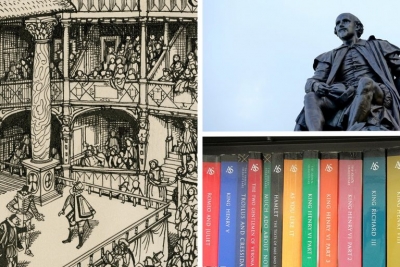
Royal patronage bestowed upon Shakespeare’s Globe theatre the prestige, and popularity it required to reach a wider audience. This is the reason why literary critics believe that Macbeth which is easily one of the greatest plays written by the bard was skillfully designed to flatter the reigning monarch King James I.
King James I succeeded Queen Elizabeth I as the royal head of the nation following the latters death in 1603. Known for his love for art and generosity towards actors, playwrights and other performers of the day, within ten days of ascending to the throne he offered his patronage to Shakespeare’s acting troupe, which the bard graciously accepted. Overjoyed by the sanction of the royal patent, the legendary playwright changed the name of his troupe to The King’s men, in honour of the reigning monarch.
The role of a patron
A patron was usually a wealthy aristocrat or royal court official who would fund the playwright’s or artist’s work and livelihoods. Acting companies based in London at the time would also require their patrons to get them a licence to perform and this was the reason why many such companies would then be named after their benefactors.
Macbeth
Royal patronage bestowed upon Shakespeare’s Globe theatre the prestige, and popularity it required to reach a wider audience. These favours are the reason why literary critics believe that Macbeth which is easily one of the greatest plays written by the bard around 1606 (his first play under his new patron) and set in King James I’s native land of Scotland, was skilfully designed to flatter the king. It also featured like treason, revolt and downfall of the monarch’s murderers – legitimising the divine right of kings as dictated by the European Christianity of the time.
Shakespeare’s history plays
Ten plays that are referred to as Shakespeare’s history plays cover English history from the 12th to 16th Century and each of these is named after and revolves around, the reigning monarch of the period. These political plays were seen as patriotic exercises that celebrated past greatness and sympathised with the suffering of the bygone days. In An Apology for Actors (1612), Shakespeare’s contemporary Thomas Heywood wrote, that history plays are written with the aim to teach their subject obedience to their king. Some examples of these plays include Richard II, Hendry V, and Richard III. Although critics are still divided about whether or not the bard’s chronicle plays were merely tools of propaganda, one cannot deny the huge impact the works of this legendary wordsmith have had on our collective understanding of these historic figures.
Picture Credit : Google




